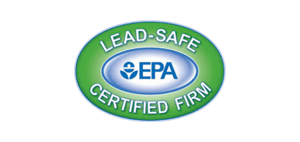Fire can be a destructive force, capable of turning a home into ashes in a matter of minutes. The devastating consequences of fire damage are something that no one wants to experience, yet it remains a reality for many homeowners. When fires occur, they leave behind a trail of destruction, taking away not only material possessions but also a sense of security and belonging.
Imagine coming home one day, only to find that everything you hold dear has been reduced to charred rubble. The photographs that captured precious memories, the heirlooms passed down through generations, the comforting familiarity of your living space—all gone in an instant.
It’s a horrifying thought, but unfortunately, it’s one that countless individuals have had to face. And while fire incidents can have various causes, there is one that stands out as the leading contributor to home fires: cooking incidents.
According to the National Fire Protection Association (NFPA), cooking fires are responsible for a significant number of home fires each year. The combination of heat, flammable materials, and human error can quickly escalate into a dangerous situation. Whether it’s leaving a stove unattended, forgetting about a pot of oil on high heat, or a momentary distraction that results in a forgotten dish in the oven, the consequences can be devastating.
Why does this happen? In the chaos of our busy lives, it’s easy to underestimate the risks associated with cooking. We become complacent, assuming that we can quickly attend to something else while our food cooks, unaware of the potential danger that lurks in the background.
But the reality is, kitchen mishaps can lead to irreversible damage. The flames that dance in the pan can quickly ravage our homes, leaving behind nothing but scorched walls, smoke-stained ceilings, and the overwhelming smell of burnt memories.
So what can be done to prevent such a tragedy? It starts with awareness. Understanding the common causes of fire damage in homes is the first step towards prevention. By recognizing the importance of kitchen safety, implementing preventive measures, and remaining vigilant while cooking, we can significantly reduce the chances of fire incidents and protect what matters most to us.
Understanding Fire Damage in Residential Properties
Fire damage can have devastating effects on residential properties. Beyond the obvious destruction of belongings and structural elements, fire incidents often lead to smoke and water damage as well. The heat and smoke generated during a fire can cause extensive damage to walls, ceilings, and floors. Additionally, the water used to extinguish the fire can seep into materials, leading to further deterioration.
It is crucial for homeowners to understand the full extent of fire damage and the subsequent challenges they may face in the restoration process.
Kitchen Mishaps: The Leading Contributor to Home Fires
Kitchen mishaps are the leading contributor to home fires. Unattended cooking, misuse of cooking appliances, and flammable objects near heat sources are common causes of kitchen fires. Carelessness, distractions, and lack of proper safety measures can quickly lead to disaster. Homeowners should take precautions such as staying in the kitchen while cooking, keeping flammable objects away from heat sources, and regularly maintaining their cooking appliances to minimize the risk of kitchen fires.
Heating Equipment and Fire Incidents
Heating equipment, such as furnaces, space heaters, and fireplaces, can pose a fire hazard if not used and maintained properly. Poor maintenance, including the buildup of dust and debris, faulty wiring, and improper installation, can increase the risk of fire incidents.
Homeowners should ensure regular maintenance of heating equipment, follow manufacturer guidelines, and keep flammable materials at a safe distance. Installing smoke detectors and carbon monoxide alarms is also crucial for early detection and prevention of heating-related fires.
Electrical Systems and Appliance Failures
Electrical systems and appliances are common culprits when it comes to fire damage in residential properties. Faulty wiring, overloaded circuits, and malfunctioning appliances can all lead to electrical fires. To prevent electrical fire hazards, it is crucial for homeowners to prioritize electrical safety. This includes having their electrical systems inspected by professionals on a regular basis and promptly addressing any electrical issues that arise.
One effective way to protect against electrical fires is by using surge protectors. These devices help prevent power surges and can safeguard appliances and electronics from overheating or malfunctioning. Additionally, homeowners should avoid using extension cords as permanent solutions, as they can overload circuits and increase the risk of fire.
Proper maintenance of appliances is also essential in preventing electrical fires. Regularly cleaning and servicing appliances can help identify and address any potential hazards. It is important to follow manufacturer guidelines for maintenance and usage and to refrain from DIY repairs unless skilled in electrical work.
By taking these electrical safety tips into consideration, homeowners can significantly reduce the risk of electrical fires and protect their homes and loved ones from fire damage.
Conclusion
Protecting your home from fire damage should be a top priority for every homeowner. Understanding the leading causes of fire incidents, such as cooking mishaps, heating equipment issues, and electrical failures, is crucial in taking preventive measures to safeguard your home and loved ones. By practicing kitchen safety, maintaining your heating equipment, and addressing any electrical issues promptly, you can significantly reduce the risk of fire damage.
Kitchen safety plays a vital role in preventing fire incidents. Remember to always stay in the kitchen while cooking, keep flammable objects away from heat sources, and regularly maintain your cooking appliances. Additionally, maintaining your heating equipment is crucial. Ensure regular maintenance, follow manufacturer guidelines, and keep flammable materials at a safe distance to prevent heating-related fires.
In addition to kitchen and heating safety, it’s important to address electrical issues to minimize the risk of fire damage. Have your electrical systems inspected by professionals regularly and promptly address any electrical issues. Using surge protectors, avoiding the use of extension cords as permanent solutions, and properly maintaining your appliances can also help prevent electrical fires.
Finally, don’t forget to have working smoke detectors installed in your home and develop an emergency escape plan. Smoke detectors can provide early detection of fire incidents, giving you valuable time to evacuate safely. Having an escape plan in place ensures that everyone in your household knows how to react in the event of a fire, saving lives.
FAQ
What is the most common cause of fire damage?
The most common cause of fire damage in residential properties is cooking incidents. Cooking fires account for a significant number of home fires each year, resulting in property damage, injuries, and even loss of life. It is important for homeowners to understand the risks associated with cooking and take preventive measures to minimize the chances of fire incidents.
What are the effects of fire damage in residential properties?
Fire damage can have devastating effects on residential properties. Aside from the destruction of belongings and structural elements, fires often lead to smoke and water damage as well. The heat and smoke generated during a fire can cause extensive damage to walls, ceilings, and floors. Additionally, the water used during firefighting efforts can seep into materials, further deteriorating the property.
What is the leading contributor to home fires?
Kitchen mishaps, such as unattended cooking, misuse of cooking appliances, and flammable objects near heat sources, are the leading contributors to home fires. Carelessness, distractions, and lack of proper safety measures can quickly lead to disaster. Homeowners should take precautions such as staying in the kitchen while cooking, keeping flammable objects away from heat sources, and regularly maintaining their cooking appliances to minimize the risk of kitchen fires.
How can heating equipment pose a fire hazard?
Heating equipment, such as furnaces, space heaters, and fireplaces, can pose a fire hazard if not used and maintained properly. Poor maintenance, including the buildup of dust and debris, faulty wiring, and improper installation, can increase the risk of fire incidents. Homeowners should ensure regular maintenance of heating equipment, follow manufacturer guidelines, and keep flammable materials at a safe distance. Installing smoke detectors and carbon monoxide alarms is also crucial for early detection and prevention of heating-related fires.
What are common causes of electrical fires?
Electrical systems and appliance failures are common causes of fire damage. Electrical fires can result from faulty wiring, overloaded circuits, and malfunctioning appliances. It is essential for homeowners to have their electrical systems inspected by professionals regularly and to address any electrical issues promptly. Using surge protectors, avoiding the use of extension cords as permanent solutions, and properly maintaining appliances can help prevent electrical fires.
How can homeowners protect their homes from fire damage?
Homeowners can protect their homes from fire damage by practicing kitchen safety, maintaining heating equipment, and addressing electrical issues. This includes staying in the kitchen while cooking, keeping flammable objects away from heat sources, conducting regular maintenance of heating equipment, following manufacturer guidelines, and having electrical systems inspected by professionals. Additionally, installing smoke detectors, carbon monoxide alarms, and having an emergency escape plan in place can greatly reduce the risk of fire damage and save lives in the event of a fire.
























